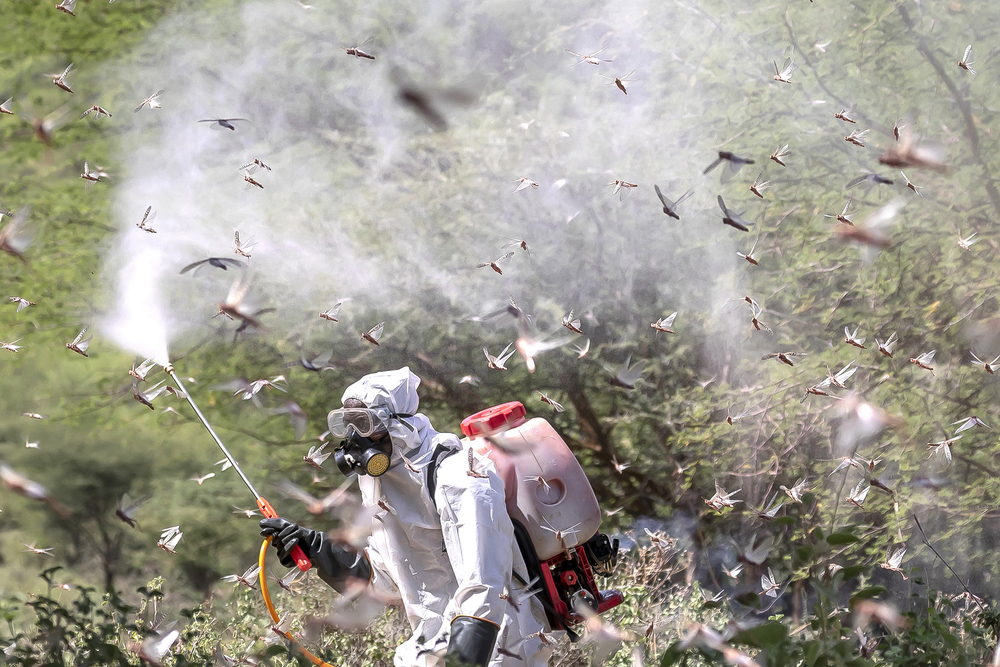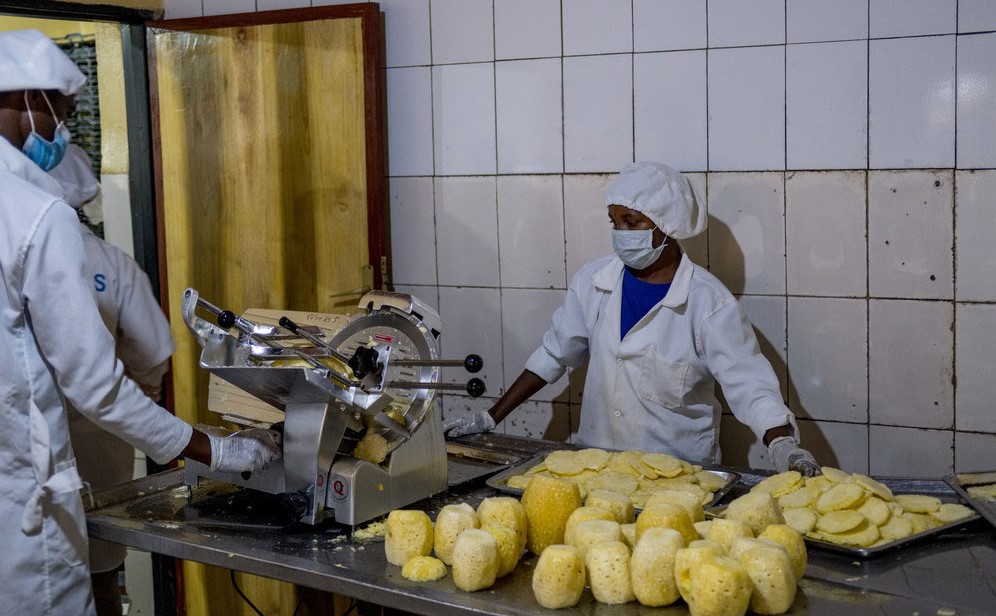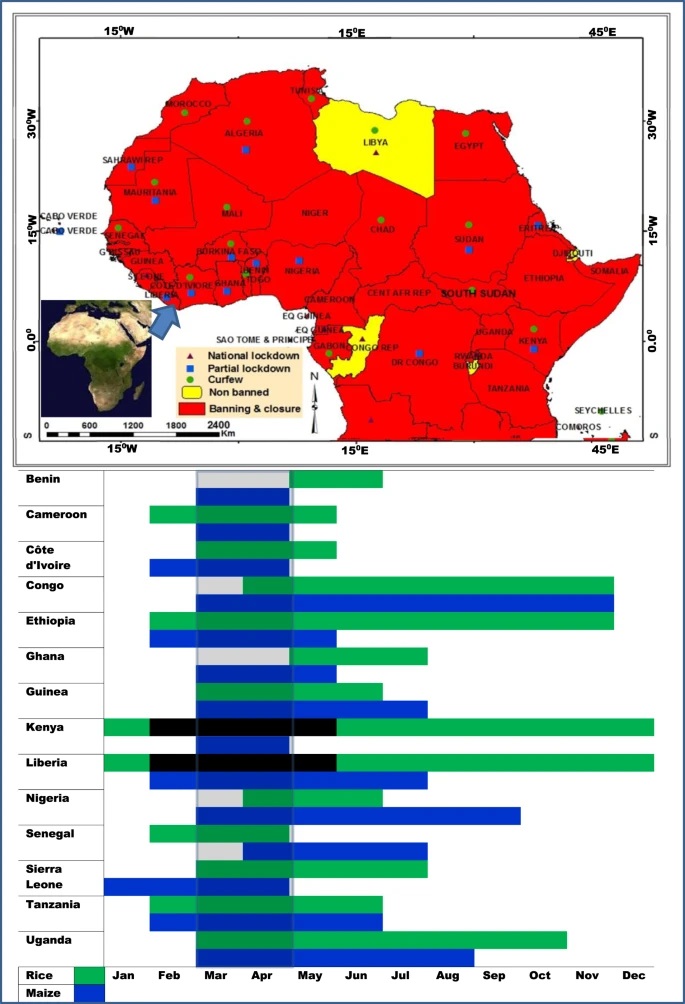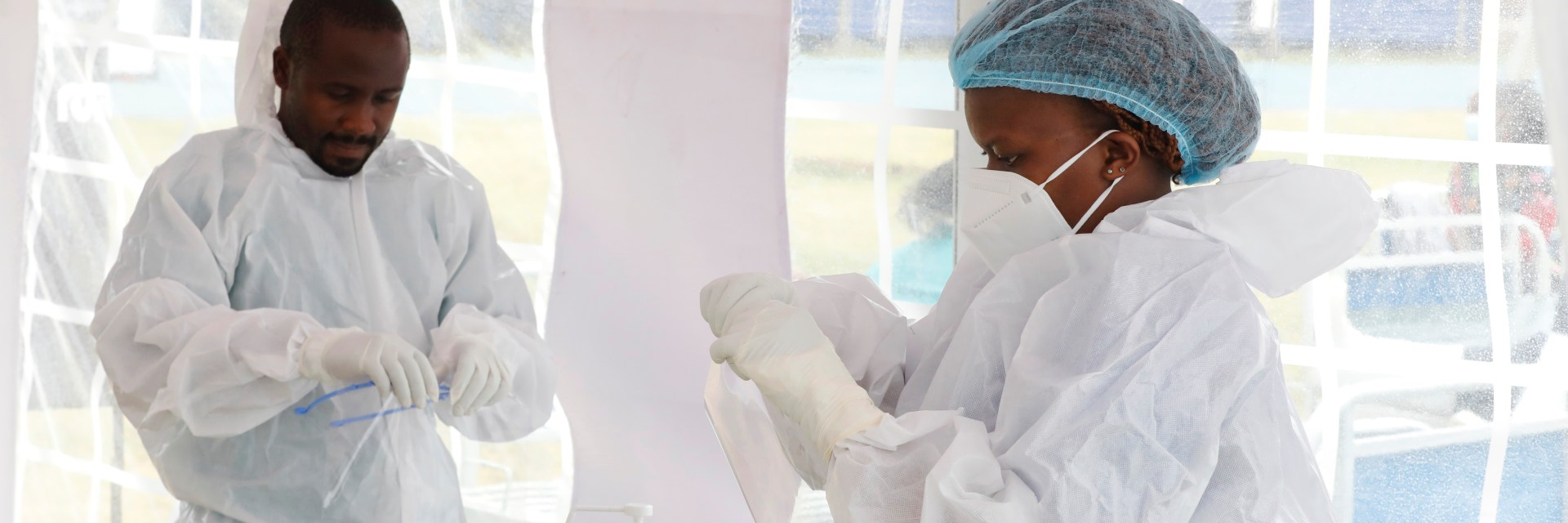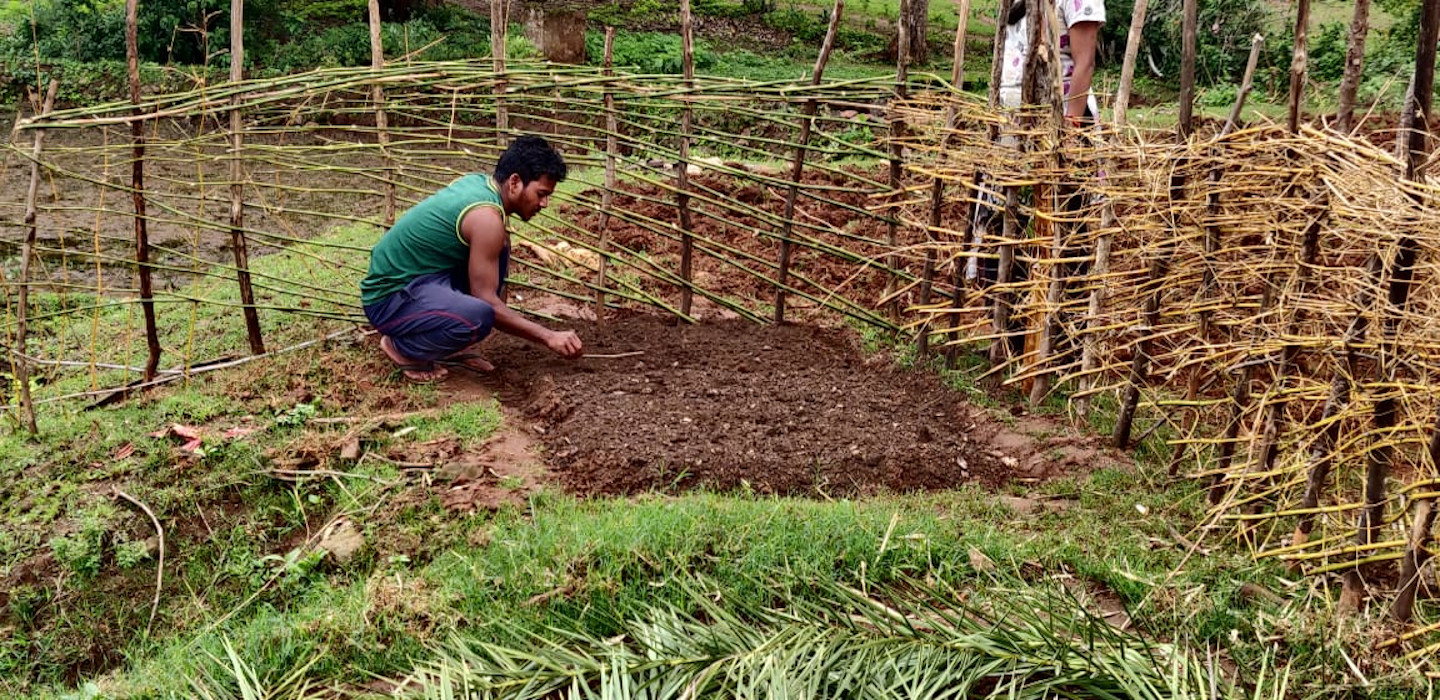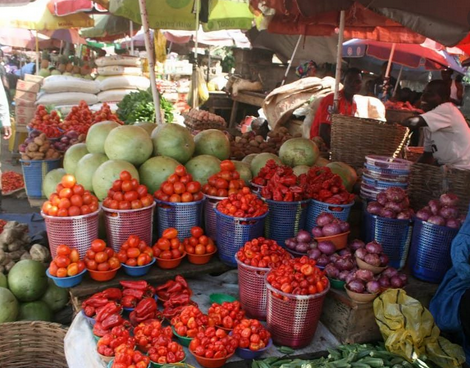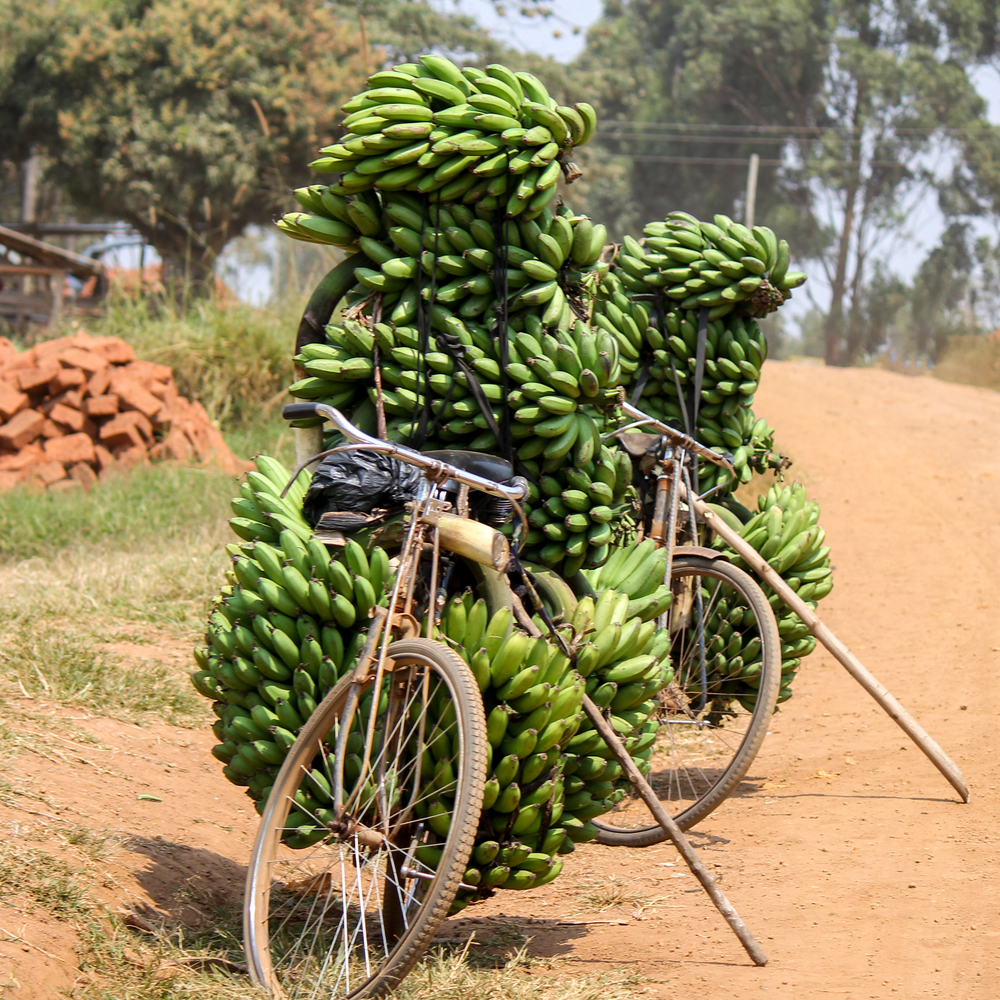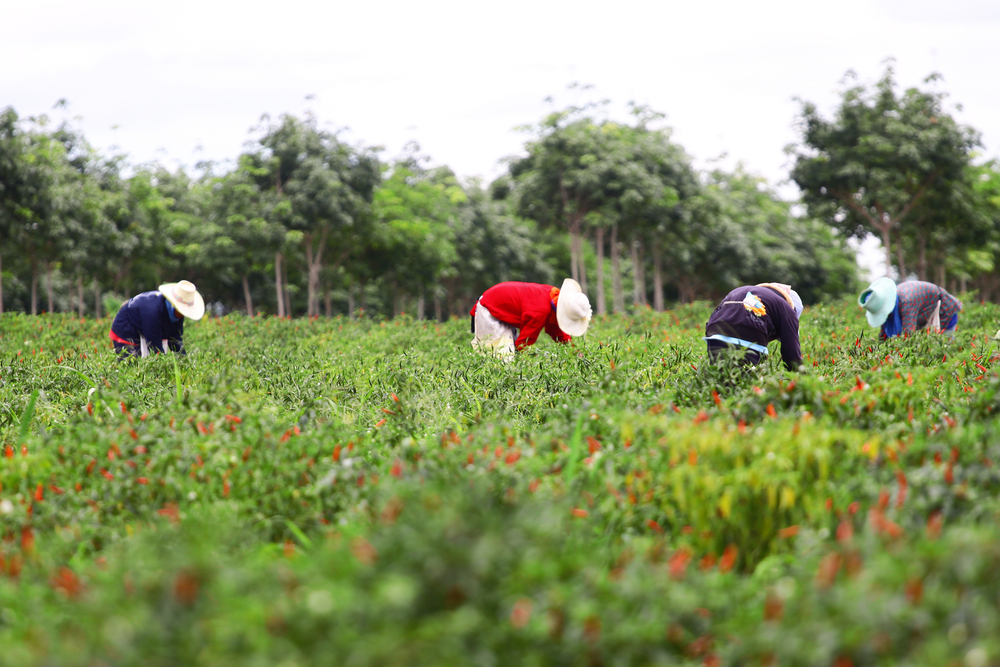WEF
COVID-19 is set to radically exacerbate food insecurity in Africa
Humanitarian
Delays in obtaining pesticides, helicopters, and other vital supplies have set back efforts to combat East Africa’s worst desert locust outbreak in decades. And now a second generation of the pest is forming swarms just as a new crop season gets underway, threatening the livelihoods of millions of people.
AU
Africa has so far escaped the worst health consequences of the COVID-19 pandemic. However, the continent looks like it could be the worst hit from the economic fallout of the crisis: 80 million Africans could be pushed into extreme poverty if action is not taken. And disruptions in food systems raise the prospect of more Africans falling into hunger. Rural people, many of whom work on small-scale farms, are particularly vulnerable to the impacts of the crisis. It is therefore vital that the COVID-19 response address food security and target the rural poor.
Brookings
Even before the global COVID-19 pandemic broke out, food insecurity was a serious concern throughout sub-Saharan Africa. According to the Food and Agriculture Organization, 239 million people in the region were undernourished as of 2018. Since long before the COVID-19 pandemic, these chronic food crises have been driven by a variety of factors, including economic shocks, climate, and conflict. Indeed, areas that are severely affected by climate change—particularly the Sahel region, the Horn of Africa, and southern Africa—have many food insecure people.
Nature
COVID-19 and food security in Sub-Saharan Africa: implications of lockdown during agricultural planting seasons.
Brookings
As summer winds down, another wave of COVID-19 infections looms. While cases remain under control in Cambodia, Denmark, Mauritius, and Morocco, they are on the rise in Ethiopia and parts of the United States. Infections have risen so sharply in France, Kenya, and Spain that new lockdowns may be imminent. In Brazil and South Africa, the peak may be yet to come.
IFAD
The COVID-19 pandemic has forced many people to re-examine everything: their priorities, their jobs, even their roles in society. Those who were already vulnerable – including the poor, those who live in rural areas, and those who belong to marginalized groups, such as women and indigenous peoples – are no exception to this. Yet despite the often devastating socio-economic consequences caused by the pandemic, many have managed, through strength and creativity, to keep their work alive while staying safe and healthy.
Leadership
As the impacts of COVID-19 take their toll on human health and well-being around the world, the imperative of producing and ensuring access to healthy food for each and every one of us must not be overlooked. The food systems that must give daily sustenance to all humans on this planet are under threat by the pandemic. If we want to avoid what could be the worst food crisis in modern history, we need robust and strategic international cooperation at an extraordinary scale.
Mail Guardian
African governments have been urged to make feasible policy shifts that will allow the agriculture sector and farming businesses to better weather the Covid-19 pandemic.African governments have been urged to make feasible policy shifts that will allow the agriculture sector and farming businesses to better weather the Covid-19 pandemic.
DEVEX
Social distancing requirements and travel restrictions have prevented farmers from sowing their crops, leading to labor disruption, and wreaking havoc on supply chains


